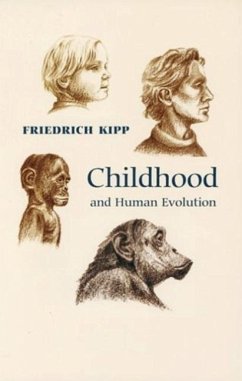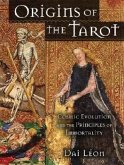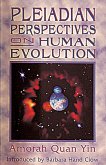In this accessible and groundbreaking work, Friedrich Kipp shows that childhood and youth--an extended period of nurture and protection from the struggle for existence--have been, and will continue to be, a necessary condition for human evolution. His observations confirm our intuitive feeling that this prolonged phase of human life holds the promise of our future. Kipp's comparative study of the juvenile stage in animals and humans also sheds surprising new light on the process of human evolution and our relation to the animal primates. In their earliest developmental stage, animals--and the animal primates in particular--display characteristics reminiscent of human children. However these more universal, humanlike characteristics are quickly lost as the animals adapt to specific ecological conditions. The animals' early closeness to the human form and their developmental trajectory away from the human suggests that the main trunk of the evolutionary tree is intimately associated with human evolution. CONTENTS: I. INTRODUCTION II. POSTNATAL DEVELOPMENT IN MAMMALS 1. Chronology 2. What Makes Early Independence Possible? 3. Behavioral Plasticity in Young Animals III. HUMAN CHILDHOOD AND YOUTH 1. Characteristic Features of Postnatal Development Standing and learning to walk The use of the hand The ossification of the skull and the growth of the brain Dentition processes Sexual maturity and the adolescent growth spurt 2. The Meaning and Significance of Prolonged Youth 3. Human Plasticity IV. MORPHOLOGICAL STUDIES OF THE HEAD 1. Distinguishing Human and Mammalian Structural Types The structural type of the mammalian skull The structural type of the human head 2. The Morphology of the Simian Head and its Ontogeny The form of the simian head in early childhood 3. Conditions for the Development of the Human Head and Human Brain V. CARE OF THE YOUNG AND THE EVOLUTION OF THE CEREBRUM VI. PROTECTION FROM THE STRUGGLE FOR EXISTENCE IN HUMAN EVOLUTION VII. LOVE AND CARING VIII. HUMAN EVOLUTION RECONSIDERED 1. The Form of the Head 2. Cerebralization 3. The Position of the Foramen Magnum 4. Changes in the Structure of the Hand 5. The Larynx and its Appendages 6. Psychological Findings IX. THE FOSSIL EVIDENCE - A SURVEY 1. Homo Sapiens Fossils 2. Homo Neandertalensis 3. Steinheim Man 4. Homo Erectus 5. Australopithicus and Paranthropus 6. Other Fossils from the Tertiary 7. The Form of the Head in Fossil Hominid Children X. PSYCHOLOGICAL IMPLICATIONS OF UPRIGHT POSTURE XI. VOICE AND SPEECH 1. Mammal Vocalization 2. The Free Use of the Voice in the Human Being 3. The Organs of the Mouth in the Service of Language XII. HUMAN BEINGS TEACH THEIR ORGANS CONCLUSION Bibliography About the Author A Related Book








